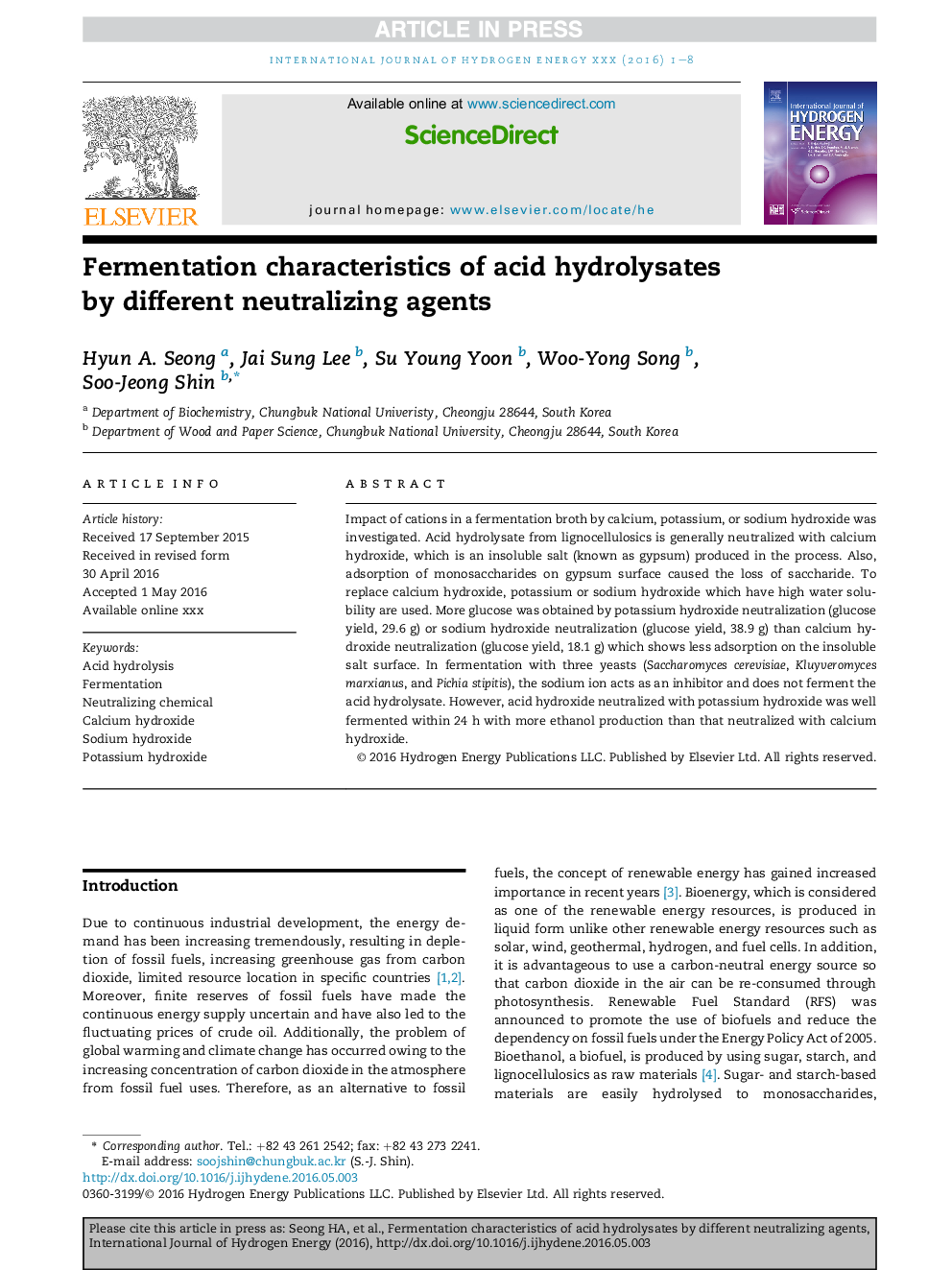| Article ID | Journal | Published Year | Pages | File Type |
|---|---|---|---|---|
| 5147645 | International Journal of Hydrogen Energy | 2016 | 8 Pages |
Abstract
Impact of cations in a fermentation broth by calcium, potassium, or sodium hydroxide was investigated. Acid hydrolysate from lignocellulosics is generally neutralized with calcium hydroxide, which is an insoluble salt (known as gypsum) produced in the process. Also, adsorption of monosaccharides on gypsum surface caused the loss of saccharide. To replace calcium hydroxide, potassium or sodium hydroxide which have high water solubility are used. More glucose was obtained by potassium hydroxide neutralization (glucose yield, 29.6Â g) or sodium hydroxide neutralization (glucose yield, 38.9Â g) than calcium hydroxide neutralization (glucose yield, 18.1Â g) which shows less adsorption on the insoluble salt surface. In fermentation with three yeasts (Saccharomyces cerevisiae, Kluyveromyces marxianus, and Pichia stipitis), the sodium ion acts as an inhibitor and does not ferment the acid hydrolysate. However, acid hydroxide neutralized with potassium hydroxide was well fermented within 24Â h with more ethanol production than that neutralized with calcium hydroxide.
Keywords
Related Topics
Physical Sciences and Engineering
Chemistry
Electrochemistry
Authors
Hyun A. Seong, Jai Sung Lee, Su Young Yoon, Woo-Yong Song, Soo-Jeong Shin,
